It’s that time of year when the robins from the north head south to Cape Cod to feed on berries. Many birds feast on berries all winter long, including mockingbirds, bluebirds, cardinals and cedar waxwings. Fortunately for them, we have many berry-licious plants that hold berries throughout the winter or at least until they are stripped clean.
Birds are not the only wildlife that eats berries. Rabbits, deer, mice and even foxes will nibble on berries as well as rose hips.
Winterberry is quickly being consumed by birds as the temperature drops. The bright red berries of this deciduous holly are a hands or wings down favorite of birds. They get eaten first and a stand of these can be cleaned out in only a few days.
This stand of berries was being attacked by a flock of dozens of hungry robins one recent afternoon. The bush was full of birds, while others waited in the trees nearby. You can see that the bush is already half stripped of berries.
As I watched the robins gorge themselves I noticed smaller birds sneaking in to get their share. I knew immediately they were cedar waxwings from the high trills coming from a tree on the other side of the huge berry bush. You can see their silhouettes are sleeker as well as smaller than the chunkier robins.
Winterberries, holly berries, rose hips, privet berries and cat brier berries will all be gobbled down by winter’s end. Many of these will be planted wherever these birds and animals leave their leavings behind and new plants will grow.
One plant that is full of berries is one that fools people into picking them. They may get a virulent rash and wonder where it came from. Those sweet looking white berries are poison ivy berries! It’s best to leave them for the birds.

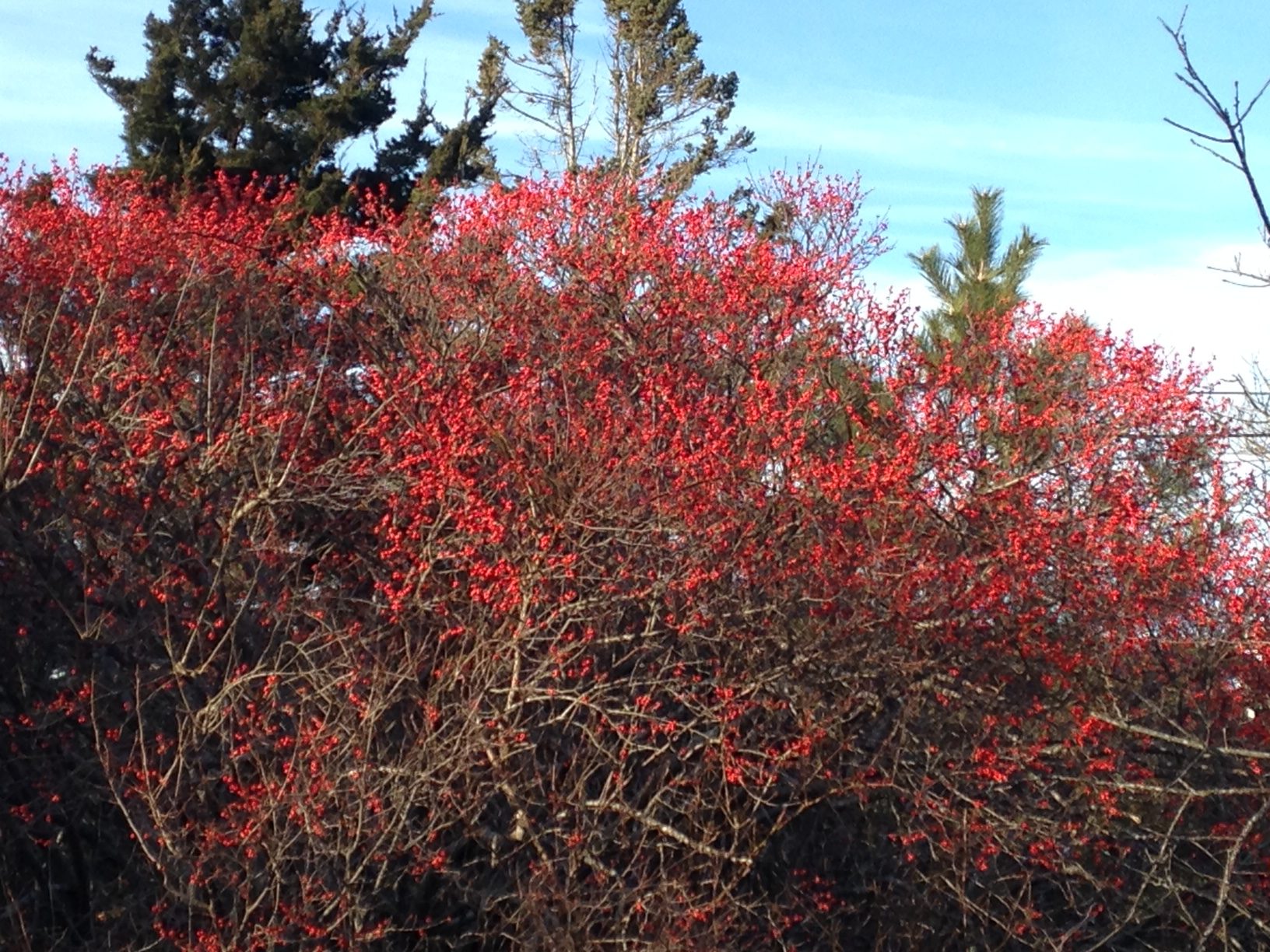
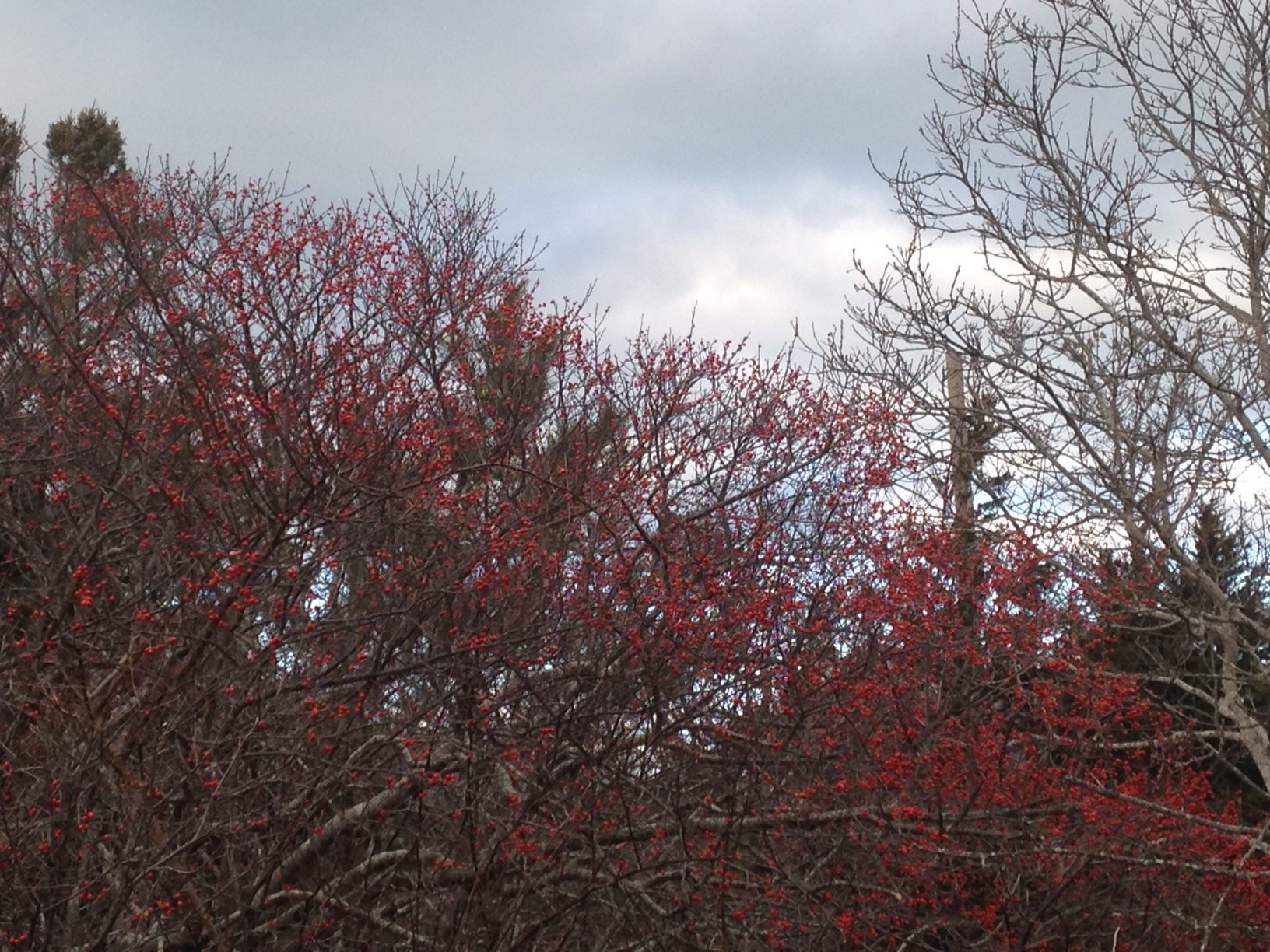
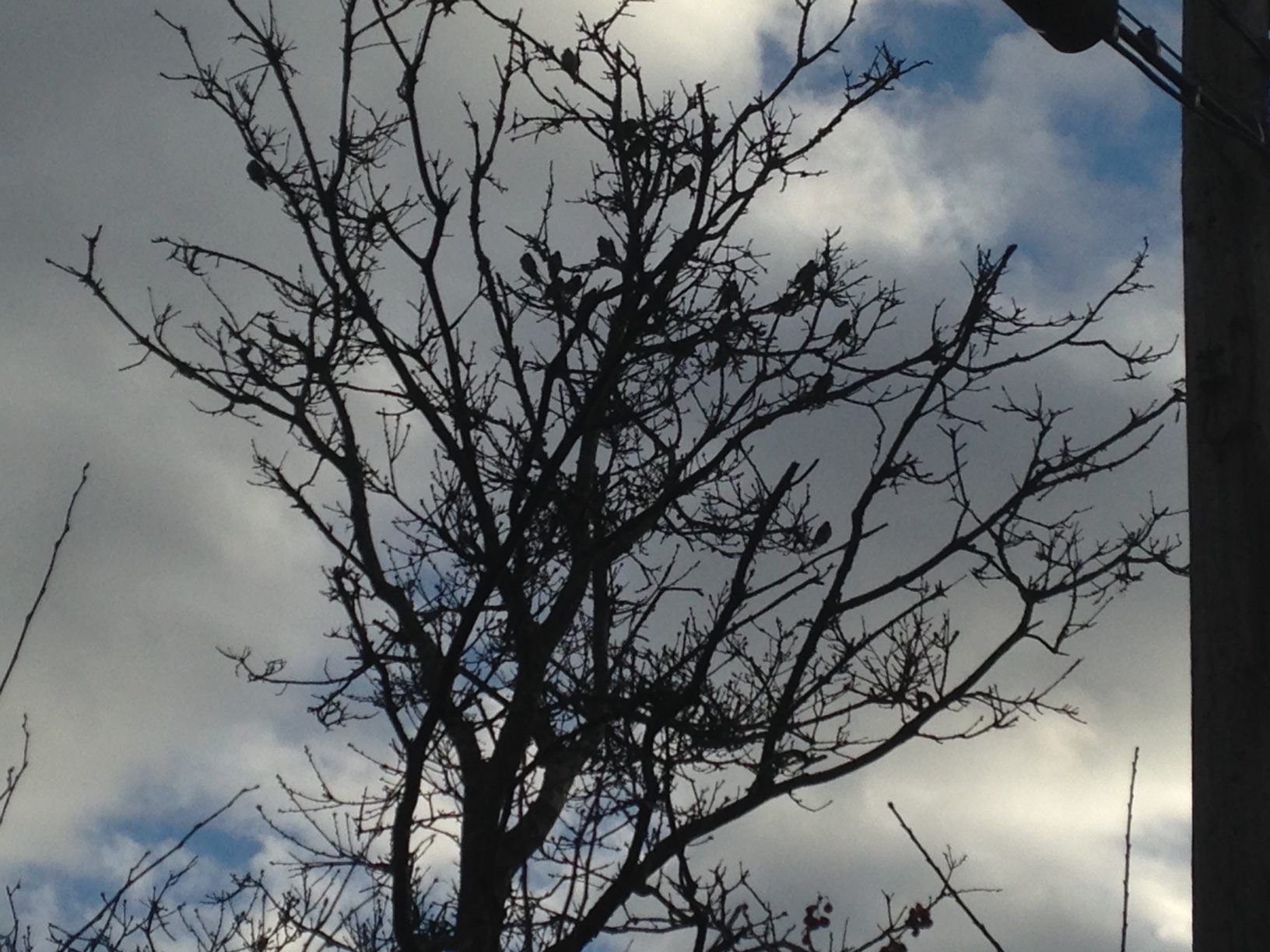
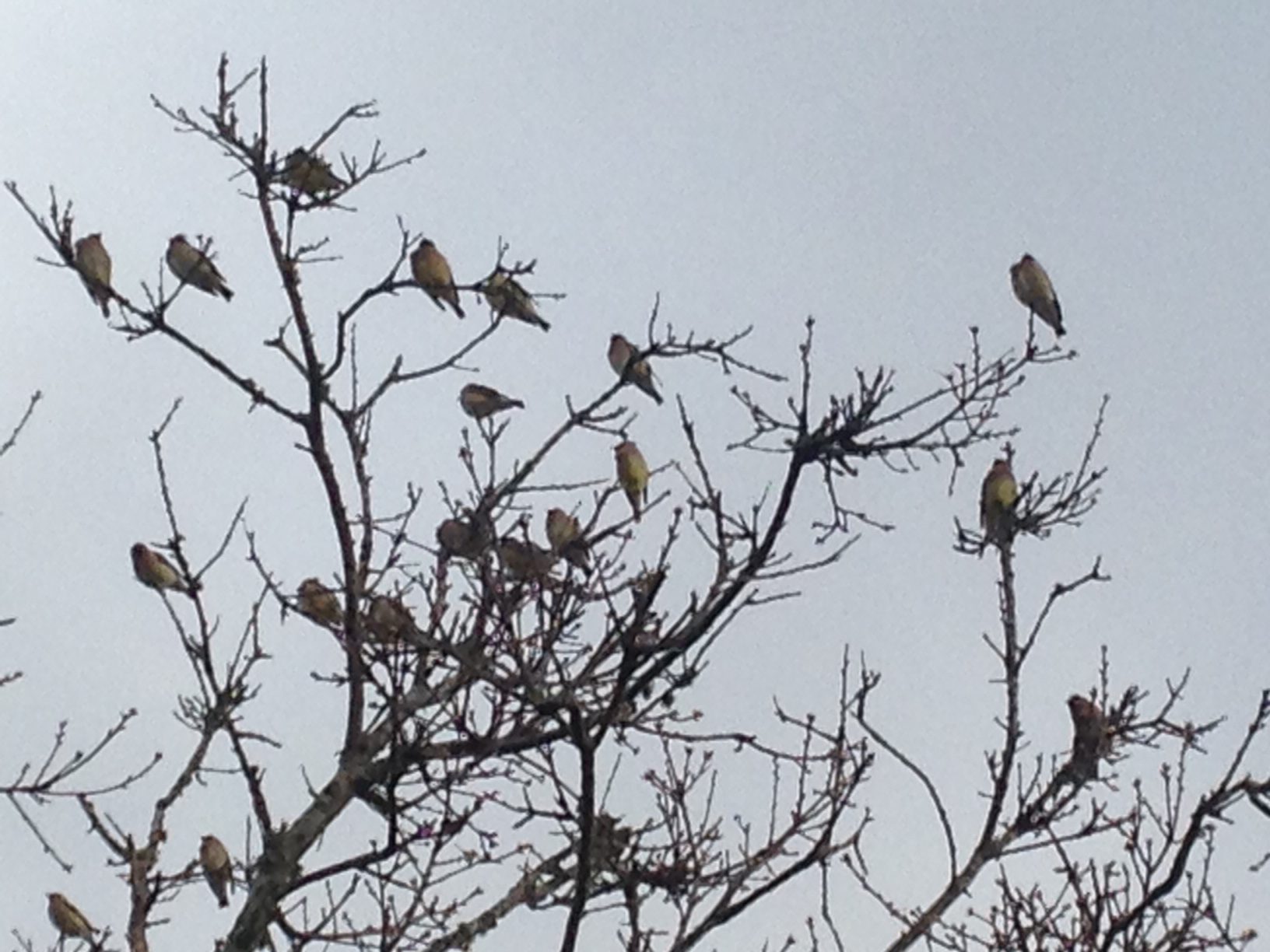
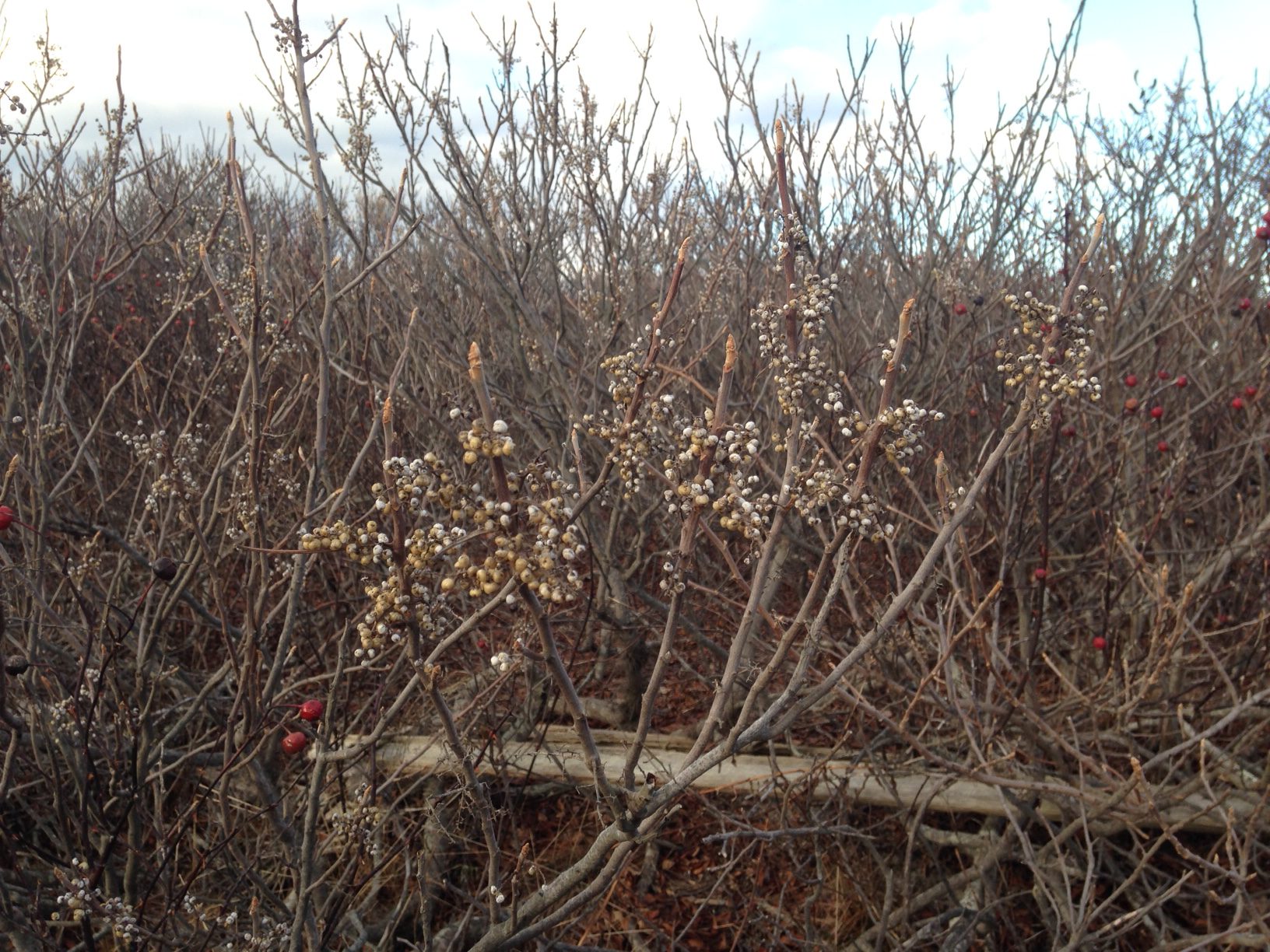
I never realized robins came to cape for berries. Learn something new everyday. Thanks Mary